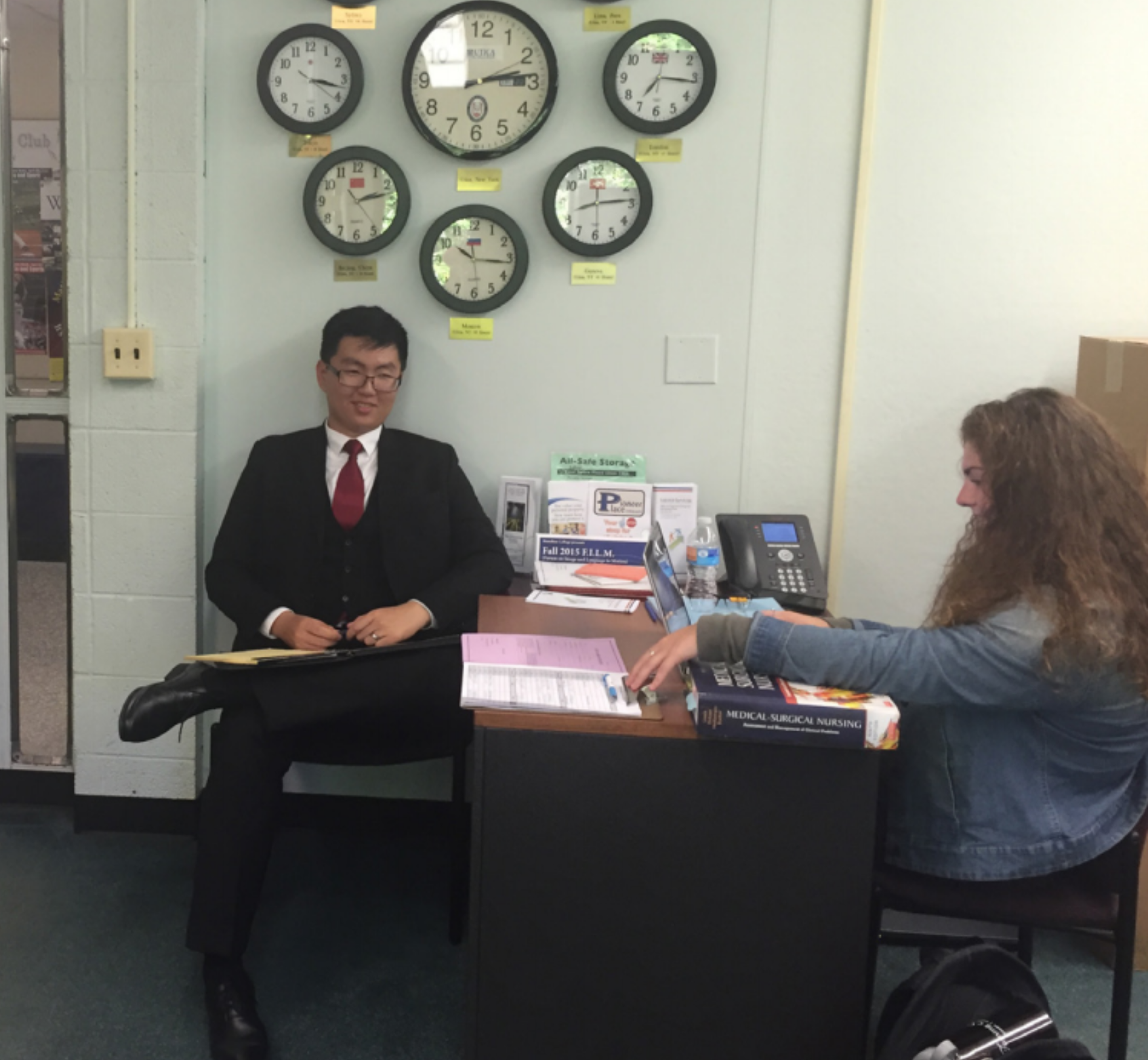
Photo by Rashida Patrick
Omar Renta
Staff Writer
The United States is known as “the melting pot” of the world. For decades, people have left their native countries to chase the American dream. Whether the move is permanent or temporary, international students come to Utica College in search of an educational experience unlike one they can get at home.
Beginning in the early ‘90s, the international education program was formed with the goal of promoting cultural diversity at UC, bridging the gap between the international students and American students. The program was also formed to provide American students with a taste of the international experience without leaving Central New York.
It is natural to wonder how international students made their way to Central New York. Despite popular belief, the recruitment process for international students is not as intricate as it seems.
The international education program gauges a student’s interest through many channels of communication. UC has partnerships with various organizations that aid in telling the UC story to students. Like American students, many international students hear of UC through word of mouth.
Students who return home after studying in the U.S. inspire their friends to learn more about the program by telling tales of their experience at UC. Students return home with a new sense of style, outlook, and some even pick up American slang.
International Student Services also travels the world to pitch over 35 of UC’s majors and programs to students in over 50 countries. The program further pushes its services through online college fairs and social media.
Students are evaluated based on grades, involvement in extra curricular activities, and a personal essay. In some cases, students chat with the faculty at UC via Skype to get more acquainted with potential international students. Once the faculty determines if the student is a good fit, the student is accepted and the real journey begins.
Support and readiness for international students are huge factors for the Office of International Education. Students are provided with resources to prepare them for cultural, social, and geological differences, making adapting to a new school and culture slightly less daunting.
International students arrive on campus three days before their American peers and spend two days learning campus resources and grabbing the essentials necessary to survive the brutal Central New York winters.
“I was pretty familiar with American culture through the media and entertainment, but I had to learn American values and norms when I got here,” recent graduate Aliya Kuy from Cambodia said. “I knew it would be much colder here than it was back home, but the international office guided me in knowing how to prepare for it.”
Students are also sent a welcome handbook with lists of items to bring and leave home, how to adapt to American culture and campus culture, and a list of resources that are available to international students.
There is also a club on campus where international students can share stories from their home countries with other international students. This helps to minimize the anxiety that comes with adapting to a new environment while maximizing personal growth.
American students are encouraged to join this club to bridge cultural gaps between American students and international students, a true testament of the term melting pot.
Having an international education program at UC is mutually beneficial for students abroad and in the states in many ways.
“Having a robust population of students from all walks of life better prepares our students to enter a global economy after graduation,” Chris Johnson, dean of international education, said.
Diversity on college campuses further helps students enrich their minds by adding a diverse approach to cultural perceptiveness and tolerance.
“I think it is important for programs like this to exist because it makes Americans more aware of the outside world,” Kuy, who has stayed in the United States since graduating from Utica College last May, said. “Programs like this help American students better understand other cultures and eliminate stereotypes.”
For more information on how to get involved visit utica.edu/academic/international or speak with an advisor in room 252 in White Hall.



































































































































